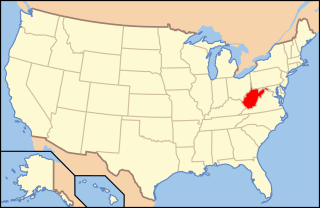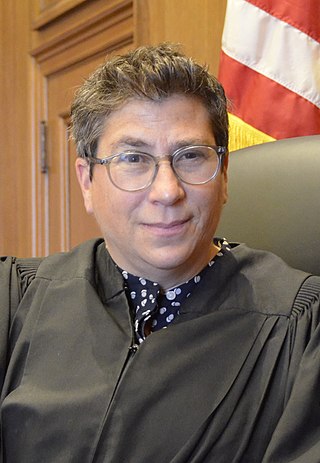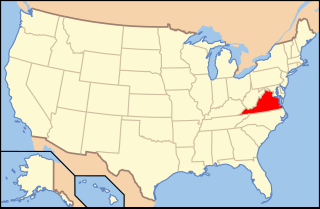
The chief justice of the United States is the chief judge of the Supreme Court of the United States and is the highest-ranking officer of the U.S. federal judiciary. Article II, Section 2, Clause 2 of the U.S. Constitution grants plenary power to the president of the United States to nominate, and, with the advice and consent of the United States Senate, appoint "Judges of the supreme Court", who serve until they die, resign, retire, or are impeached and convicted. The existence of a chief justice is only explicit in Article I, Section 3, Clause 6 which states that the chief justice shall preside over the impeachment trial of the president; this has occurred three times, for Andrew Johnson, Bill Clinton, and for Donald Trump’s first impeachment.
The Midnight Judges Act expanded the federal judiciary of the United States. The act was supported by the John Adams administration and the Federalist Party. Passage of the act has been described as "the last major policy achievement of the Federalists."

Martin v. Ziherl, 607 S.E.2d 367, was a decision by the Supreme Court of Virginia holding that the Virginia criminal law against fornication was unconstitutional. The court's decision followed the 2003 ruling of the U.S. Supreme Court in Lawrence v. Texas, which established the constitutionally-protected right of adults to engage in private, consensual sex.

The Supreme Court of Virginia is the highest court in the Commonwealth of Virginia. It primarily hears direct appeals in civil cases from the trial-level city and county circuit courts, as well as the criminal law, family law and administrative law cases that are initially appealed to the Court of Appeals of Virginia. Established in 1779 as the Supreme Court of Appeals, the Supreme Court of Virginia is one of the oldest continuously active judicial bodies in the United States.
The Supreme Court of Appeals of West Virginia is the state supreme court of the state of West Virginia, the highest of West Virginia's state courts. The court sits primarily at the West Virginia State Capitol in Charleston, although from 1873 to 1915, it was also required by state law to hold sessions in Charles Town in the state's Eastern Panhandle. The court also holds special sittings at various locations across the state.

The United States District Court for the Southern District of West Virginia is a federal court in the Fourth Circuit.
Elliott E. "Spike" Maynard was an American lawyer and former judge from West Virginia. In 1996 he was elected as a Democrat to the Supreme Court of Appeals of West Virginia. A judge of West Virginia's 30th Judicial Circuit for over 16 years, he was elected as a Democrat to a 12-year term on the Supreme Court of Appeals of West Virginia in 1996.
Margaret Lee Workman is an American lawyer and a former justice of the Supreme Court of Appeals of West Virginia. Her 1988 election to the Supreme Court made her the first woman elected to statewide office in West Virginia and first female Justice on the Court.

Menis E. Ketchum II is an American politician and jurist who served as a justice of the Supreme Court of Appeals of West Virginia. He was elected as a Democrat to a twelve-year term on the Court in November 2008 and served as chief justice in 2012 and served a second term as chief justice in 2016. He resigned in July 2018 with slightly less than 18 months left in his term. Ketchum resigned prior to the Impeachment of the Supreme Court of Appeals of West Virginia, but was still implicated by the House of Delegates. On July 31, 2018, he pled guilty to a felony count of fraud related to his personal use of a state vehicle and gas fuel card.
Robin Jean Davis is an American jurist who served on the Supreme Court of Appeals of West Virginia. First elected to fill an unexpired term in 1996, Davis later won full twelve-year terms in 2000 and 2012. However, Davis retired before the end of her second full term in August 2018 after the West Virginia House Judiciary Committee named Davis in articles of impeachment during the Impeachment of the Supreme Court of Appeals of West Virginia.

The Supreme Court of Mississippi is the highest court in the state of Mississippi. It was established in 1818 per the terms of the first constitution of the state and was known as the High Court of Errors and Appeals from 1832 to 1869. The court is an appellate court. The court consists of nine justices elected in nonpartisan contests from three districts to serve eight-year terms. The most senior justice serves as the chief justice. It is housed in the Carroll Gartin Justice Building in Jackson, Mississippi, the state capital.

Lesbian, gay, bisexual, and transgender (LGBT) people in the U.S. state of West Virginia face legal challenges not faced by non-LGBT persons. Same-sex sexual activity has been legal since 1976, and same-sex marriage has been recognized since October 2014. West Virginia statutes do not address discrimination on account of sexual orientation or gender identity; however, the U.S. Supreme Court's ruling in Bostock v. Clayton County established that employment discrimination against LGBT people is illegal.
Same-sex marriage has been legally recognized in West Virginia since October 9, 2014. On July 28, 2014, a ruling by the Fourth Circuit Court of Appeals in Bostic v. Schaefer found Virginia's ban on same-sex marriage unconstitutional. On October 6, 2014, the U.S. Supreme Court denied certiorari in Bostic, allowing the ruling to take effect. As a result, on October 9, 2014, Governor Earl Ray Tomblin announced he was ordering state agencies to act in compliance with the controlling precedent in the Virginia case. Even though West Virginia's ban had not been explicitly declared unconstitutional, the Fourth Circuit precedent made it certain the state's statutory ban would be overturned. The state started issuing marriage licenses to same-sex couples that same day. The U.S. District Court for the Southern District of West Virginia officially ruled the state's same-sex marriage ban unconstitutional on November 7, 2014.

Alison Julie Nathan is an American lawyer who has served as a United States circuit judge of the United States Court of Appeals for the Second Circuit since 2022. She served as a United States district judge of the United States District Court for the Southern District of New York from 2011 to 2022. She previously served as associate White House counsel for President Barack Obama.

Lesbian, gay, bisexual, and transgender (LGBT) people in the U.S. state of Virginia enjoy the same rights as non-LGBT people. LGBT rights in the state are a recent occurrence with most improvements in LGBT rights occurring in the 2000s and 2010s. Same-sex marriage has been legal in Virginia since October 6, 2014, when the U.S. Supreme Court refused to consider an appeal in the case of Bostic v. Rainey. Effective July 1, 2020, there is a state-wide law protecting LGBT persons from discrimination in employment, housing, public accommodations, and credit. The state's hate crime laws also now explicitly include both sexual orientation and gender identity.
Allen Hayes Loughry, II is a former justice on the Supreme Court of Appeals of West Virginia.
The judiciary of the Philippines consists of the Supreme Court, which is established in the Constitution, and three levels of lower courts, which are established through law by the Congress of the Philippines. The Supreme Court has expansive powers, able to overrule political and administrative decisions, and with the ability to craft rules and law without precedent. It further determines the rules of procedure for lower courts, and its members sit on electoral tribunals.
The impeachment of the Supreme Court of Appeals of West Virginia occurred on August 13, 2018, when the West Virginia House of Delegates voted to impeach all five justices of the Supreme Court of Appeals of West Virginia for charges relating to corruption, overspending, and lack of oversight. Despite being threatened in other states at other times, this is the only time in United States history that the entire bench of the highest court of a state has been impeached.

West Virginia held elections on November 3, 2020. The Democratic and Republican party primary elections were held on June 9, 2020. The 2020 elections marked a turning point history as West Virginia's rightward shift was further signified: Republicans won all U.S. House seats, statewide executive offices & the U.S. Senate seat up for election while also expanding their majorities in both state legislative chambers, & President Trump won every county in the state and 68.62% of the statewide vote in his re-election bid, for a statewide margin of 38.93%.
George M. Scott was a justice of the Supreme Court of Appeals of West Virginia. In November 1999, he was appointed by Republican Governor Cecil H. Underwood to the Supreme Court of Appeals to fill the vacancy created by the resignation of Justice Margaret Workman.








